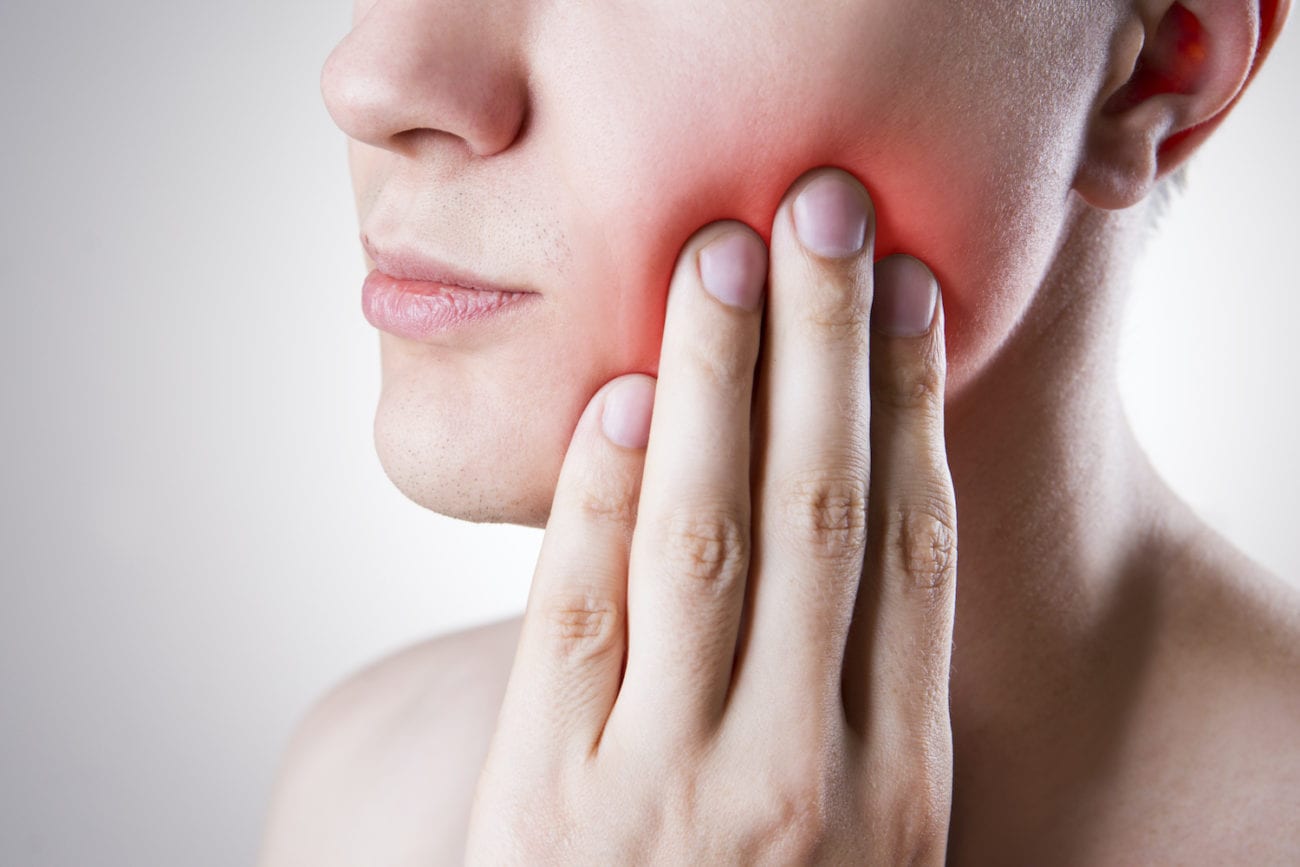There are multiple oral health problems that can arise when we feel stressed. We want to remind our patients of the symptoms that accompany stress so that they can receive appropriate care in our office. Dr. Sal Lotardo is dedicated to helping patients know their symptoms and get comfortable and comprehensive treatment. Learn as we go more in-depth with each symptom and their links to oral health:

Jaw Dysfunction and Pain
Common symptoms of TMJ disorders may occur under stress. Patients with temporomandibular joint disorders may hear their jaw pop or click or can have trouble opening and closing their mouths. If you notice yourself clenching your teeth throughout the day, try to relax your jaw. Bite misalignment may also cause jaw dysfunction but can be treated with orthodontics. In severe cases, TMJ can lead to issues with speaking or eating.
Headaches and Pain
Stressed patients often clench and grind their teeth more, which causes pain in the face and jaw. You may also feel tension or pain in the neck and shoulders, as well as morning headaches. However, certain massage techniques may specifically help with this pain. If you are in isolation with a partner or family member, they may be able to help you with these exercises.
Tooth Damage
Teeth clenching and grinding caused by stress may wear down your teeth, especially if you’re grinding for long periods of time. It is also possible for teeth to chip, crack, or break because of the added pressure to teeth. Tooth chips may be cosmetic or restorative problems. A break that exposes the pulp of your tooth will cause pain. If this happens to you, contact our office for emergency dental care.
Contact Our Dental Offices
To schedule an appointment, you can call our Nesconset, NY office at (631) 228-8780, our Riverhead, NY office at (631) 574-3898, and our Roslyn, NY office at (516) 217-6668.
